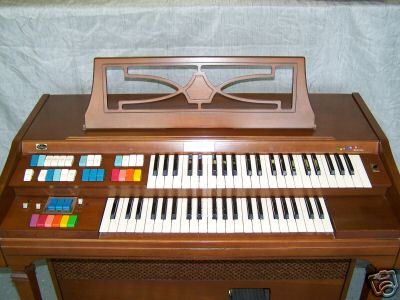
At a cost of 4000 pounds ($6400 US) the Eigenharp is a musical behemoth is appropriately synthesized and touch responsive. It's got pressure-sensitive keys all over the place and ribbon controllers along with drum pads and other assorted noise makers that can be controlled through tapping, strumming or blowing.
Let me preface my quick review, admittedly based on the thin sample of the video at the above link, with the fact that I've been a piano player since age five, a guitar player since age twelve, and a sax player since age thirteen. This thing looks like a giant clusterfrak of a musical instrument surgery gone wrong.
I played synthesizers for years and while I originally loved the concept of the emulation that a synth provided, especially in its samples of other instruments, I grew to despise synths for trying to simulate organic sounds. I don't mind synths pulling off a fat square wave or a edgy sine swoop, but I now bristle at the sounds of sax or guitar coming out.
I understand that, in some cases, cost may be prohibitive for a young musician trying to express creativity. This overblown Casio beatbox funmaker is certainly a musical instrument, certainly requires talent, certainly facilitates a specific type of expression. If I can afford this thing, I could also certainly afford a saxophone, a grand piano, a bassoon, a guitar or a drum kit.
It's said that one of the reasons the creators conceived of such an instrument was to cut down on the massive amounts of gear they'd have to bring out to each show in order to play... here's an idea - buy a guitar and a pick and hit the local coffeeshop! I'd much rather hear a lone sax player who knows how to play sax, than a lone eigenharp player who knows how to play a sax sound on his eigenharp.
I'm sure there will be some people who love this and claim I'm some sort of musical Luddite for chastising what some news outlets will report as the future of musical instruments. Another thought from the linked article is that it looks like something from the Star Wars cantina scene. I suppose I would've happier if this was left a long time ago in a galaxy far, far away.
Kudos to the creators for living their dream in executing the creation of this mutation. Their determination must have been dogged to complete the project. For 6000 bucks, however, I'd rather buy a new piano that sounds like [GASP] a piano.
